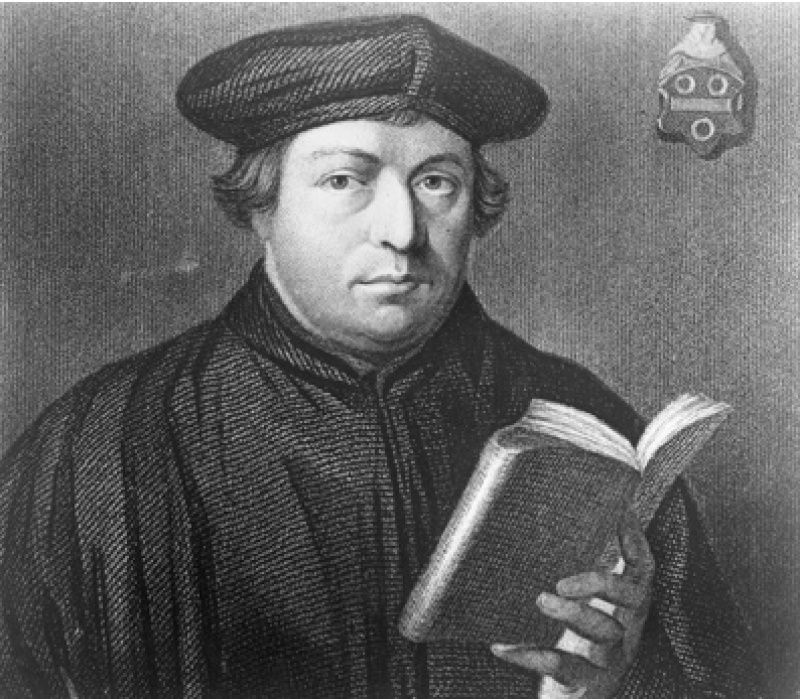

The Way of the Cross: Heidelberg Disputation (1518)
When we talk about Luther's Reformation, the Ninety-Five Theses on the Power and Efficacy of the Indulgences (1517) is often considered to be the most important thesis. It is clear that the Ninety-Five Theses is widely regarded as the initial catalyst for the Protestant Reformation and caused more of an ecclesiastical and political stir. However, it is the thesis of Heidelberg Disputation (1518) that is the most influential of all Luther's disputations with the Ninety-Five Theses.
To provide some historical background of the Heidelberg Disputation, on 31 October 1517, Luther sparked controversy by his posting of the Ninety-Five Theses on the Power and Effiicacy of the Indulgences in Wittenberg. Pope Leo X contacted Gabriel della Volta (Venetus), General of the Augustinian Eremites, and requested that he brand Luther a heretic as a means of excommunication. Volta, in turn, delegated this responsibility to Johann von Staupitz, Vicar of the German Congregation of Augustinians. Staupitz, however, holding Luther in high regard (he was Luther's best friend and spiritual father), instead invited him to speak at the Heidelberg gathering to present his new Wittenberg evangelical theology to the Augustinian brothers. In Heidelberg, Luther explained and defended his "new theology." This is the Heidelberg Theses as prepared by Luther.
Luther reveals his theology of the cross in the Heidelberg Disputation. Following St. Paul's teaching, Luther states, "the cross of Christ is not a concept compatible with human wisdom and philosophy, but only with deep folly and offense. The cross is not inspiring but a scandal. Therefore the true theologian is not one who argues from visible and evident things, but rather the one who learns from the cross that the ways of God are hidden, even in the revelation of Jesus Christ." (cf. 1 Cor. 1:18-31)
Luther presents the disputation with 40 theses -- 28 on theology and 12 on philosophy. According to Ford, the theological theses Luther presented can be divided into four general sections:
1. The Problem of Good Works (Theses 1-12): These deal with the nature and value of human works with regard to sin.
2. The Problem of Will (Theses 13-18): These deal with the impotence of human will in overcoming sin.
3.The Great Divide: The Way of Glory versus The Way of the Cross (Theses 19-24): Here is what is described as the "great divide" -- the contrasting theologies of glory and the cross. These six theses represent the keystone in the arch above.
4. God's Work in Us: The Righteousness of Faith (Theses 25-28): The outcome is God's love in Christ is a creative act that brings believers into being.
The theological importance of this set of theses is indicated by the fact that Luther's audience at Heidelberg included future reformers and theologians such as Martin Bucer and Johannes Brenz.
In spite of this importance, the Heidelberg Theses still remain the least known in Korean Church and Theology. This is because the theses are terse and compact. Therefore, without the precise knowledge of Luther's works, these theses are difficult to be understood.
I will introduce the Heidelberg Disputation with my reflection of each thesis. By doing this, I hope that Luther's theology of the Cross will spark interest in the Asian Church as well as Korean Church.

Reverend and Doctor Jin O, Jeong is an assistant pastor for Korean congregation at Zion Lutheran Church, Belleville, IL. He graduated from Luther University and received a Ph.D from Yousei University. He was also a Research Fellow at Hebrew University and Visiting Scholar at Yale Divinity School. Tel: 618-920-9311 Email : jjeong@zionbelleville.org



















